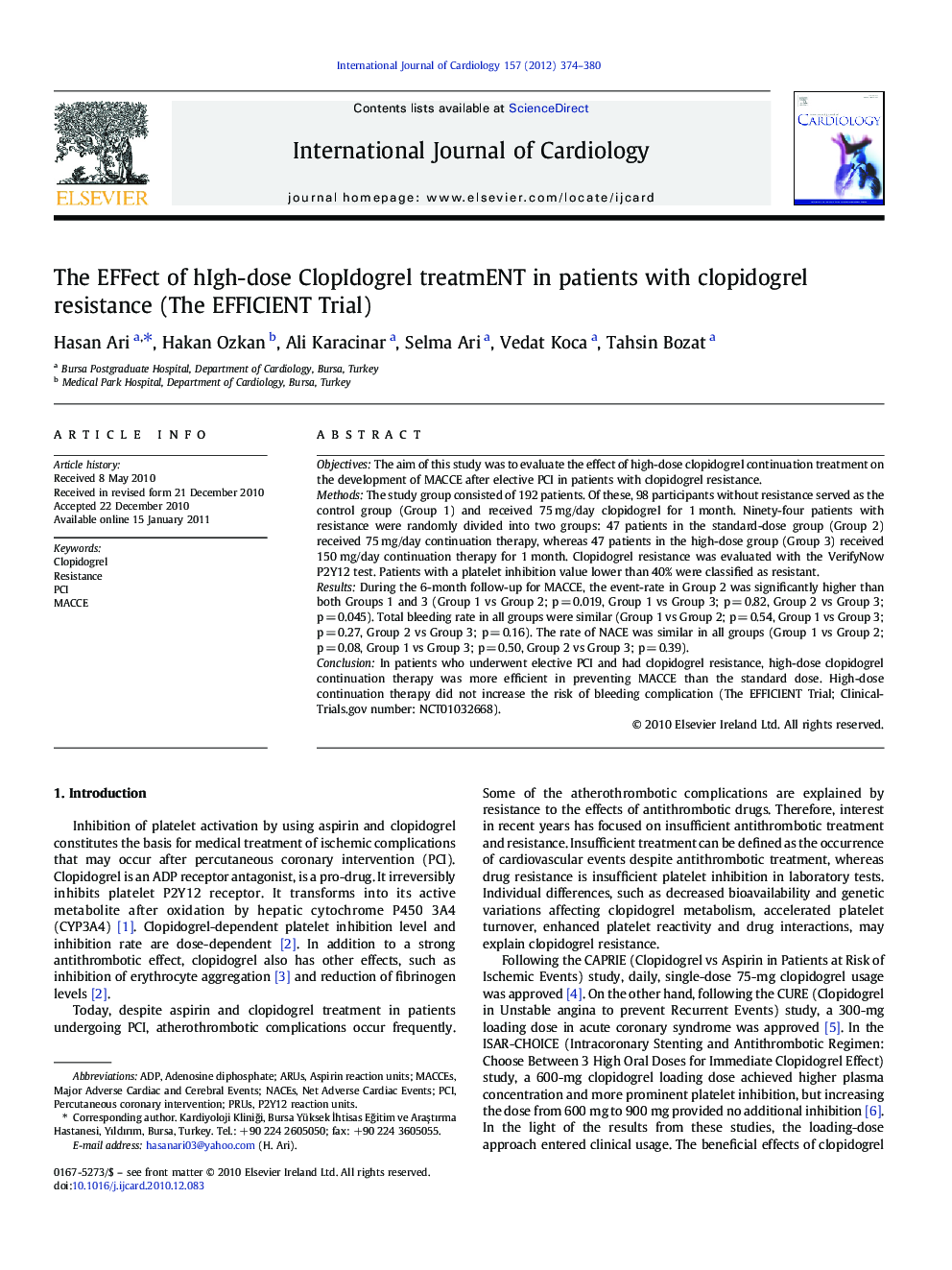| Article ID | Journal | Published Year | Pages | File Type |
|---|---|---|---|---|
| 5978180 | International Journal of Cardiology | 2012 | 7 Pages |
ObjectivesThe aim of this study was to evaluate the effect of high-dose clopidogrel continuation treatment on the development of MACCE after elective PCI in patients with clopidogrel resistance.MethodsThe study group consisted of 192 patients. Of these, 98 participants without resistance served as the control group (Group 1) and received 75 mg/day clopidogrel for 1 month. Ninety-four patients with resistance were randomly divided into two groups: 47 patients in the standard-dose group (Group 2) received 75 mg/day continuation therapy, whereas 47 patients in the high-dose group (Group 3) received 150 mg/day continuation therapy for 1 month. Clopidogrel resistance was evaluated with the VerifyNow P2Y12 test. Patients with a platelet inhibition value lower than 40% were classified as resistant.ResultsDuring the 6-month follow-up for MACCE, the event-rate in Group 2 was significantly higher than both Groups 1 and 3 (Group 1 vs Group 2; p = 0.019, Group 1 vs Group 3; p = 0.82, Group 2 vs Group 3; p = 0.045). Total bleeding rate in all groups were similar (Group 1 vs Group 2; p = 0.54, Group 1 vs Group 3; p = 0.27, Group 2 vs Group 3; p = 0.16). The rate of NACE was similar in all groups (Group 1 vs Group 2; p = 0.08, Group 1 vs Group 3; p = 0.50, Group 2 vs Group 3; p = 0.39).ConclusionIn patients who underwent elective PCI and had clopidogrel resistance, high-dose clopidogrel continuation therapy was more efficient in preventing MACCE than the standard dose. High-dose continuation therapy did not increase the risk of bleeding complication (The EFFICIENT Trial; ClinicalTrials.gov number: NCT01032668).
